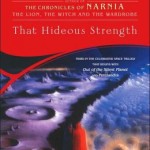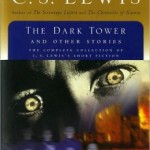A Jason Isbell song is not just a song; it’s a 3-5 minute novel. His 2013 album Southeastern is being regarded as one of the best (and my personal favorite) albums of the year—primarily because of its beautiful songwriting. Isbell’s whole career has been marked by exceptional storytelling, songs like “Danko/Manuel”, “Chicago Promenade”, and “Codeine” hit me in the same way as the powerful short stories of Flannery O’Connor, Elmore Leonard, or Harry Crews.
Like O’Connor, Leonard, and Crews, Isbell’s storytelling leaves as much to the imagination as it does vividly describe its characters and setting. Maybe my favorite Isbell “short story” is the title track on the 2004 Drive-By Truckers album, “Decoration Day”. I first heard “Decoration Day”—a sprawling five and half minute drama about a deadly family feud—when I was a teenager. Since then I have followed Isbell’s career, but never stopped going back to “Decoration Day”. It is a complicated drama that leaves much, even more than some might be comfortable with to the imagination,
Daddy said one of the boys had come by
The Lumber Man’s favorite son
He said, Beat him real good but don’t dare let him die
And if you see Holland Hill, run.
We don’t learn who the Lumber Man is. We don’t learn the circumstances around the beating, and the narrator doesn’t even know how the feud got started. But that’s okay. It allows the listeners to put together their own narrative along the rhythm of Isbell’s story.
“Decoration Day” is not a simple southern rock ballad about a Hatfield/McCoy-style rivalry, but a story about complicated, unreliably biased, confused people—like you and I. Like Hazel Motes in O’Connor’s Wise Blood, the main character of Isbell’s “Decoration Day” doesn’t give all of his cards away. We know he is a Lawson, and his family is feuding with the Hills. We also know that his affections are mixed at best. The loyalty of the main character is not black and white, but a swirl of ambiguous, relatable humanity, allowing the listener to fill in the unspoken with their own experience. We may not understand the complexities of the feud’s beginning and outworking, but most know what it is like to resent family and friends for their irresponsible proclivities.
Isbell isn’t just singing about a feud, he is singing about human nature. The power of the last lines, “If I was a Hill, I’d have put him away, and I’d fight til the last Lawson’s last living day” goes far beyond feuds.
Sometimes true things can only be expressed properly through stories. Stories that don’t do all of the work for us—or tell us how it’s all going to end—can communicate the reality of an aspect of the human condition as thoroughly as a systematic theology or psychology textbook. Stories like “Decoration Day” communicate the same truths without getting bogged down by the precise, choosing instead to communicate truth through an aesthetic. This shouldn’t work as well as it does. But there is something innate in people that causes us to see the world and ourselves clearly through stories, yet when the truth leaves the confines of the story it becomes somewhat ill-defined and illusive.
The feud in “Decoration Day” isn’t just about a single-family feud. it is a demonstration of the tension between the human circumstances and conscience—but it is more than that. It is about the reality of rivalry, guilt, bitterness and empathy. But Isbell doesn’t have to say that or define those terms. Like any good storyteller, he lets the characters say it without saying it.
Even true stories point to even larger, albeit illusive, truths outside of the stories themselves. Take the story of Chris McCandless (the Into the Wild guy) for example. If you don’t know the story, go read the book or watch the movie—it’s a great story. McCandless throws off the weight and convention of modern society, cuts all ties, and hitchhikes to Alaska. Eventually he dies (if I spoiled the film for you, I am sorry… but to be fair, Krakauer’s book starts off by telling of his fate) alone in an abandoned bus in the Alaskan brush. But his story isn’t meaningless. There are lessons and truths to be mined by the reader, because there is a lot of truth in the outworking of his story. It tells us something about who we are as people—we identify with McCandless’s longings for freedom and we identify with the collapse of his stubborn, self-dependant spirit. Stories tell us something unique about who we are and how we are meant to live—whatever that may be.
Like the ever-assessed story of Isaac and Abraham, stories do not always give away their secrets easily. Philosopher Soren Kierkegaard spent a few hundred arduous pages trying to systematize and analyze the story, and essentially left readers with a conclusion that we already—perhaps unutterably—knew, that faith is paradoxically anti-rational yet natural.
The point is that the story coaxed this out, not a systematic text. The story of Isaac and Abraham, along with the stories of Jesus, the parables of Jesus, and the hundreds of other stories in the Bible, teach us something true about the nature of God and man. But it is not always clear, and like a beautiful gemstone, some see certain facets in certain lights while others see other facets from a different angle. There is truth to be mined from stories—it just must be coaxed out through contemplation, prayer, and reflection.
And whatever “Decoration Day” is coaxing out, like the story of Abraham and Isaac, it is a parable leading to tangible truth.
I think Isbell knows this. Isbell knows that the best storytellers are listeners. They take in great stories and in turn, produce great stories. The more stories we take in, the more we understand. In an interview with American Songwriter, when asked about the stacks of books that litter his house, Isbell said:
“That’s something a songwriter needs to do: read. The best ones always do. Always. Even the f-ing punk rock kids who don’t wanna admit it. They’re reading the Russians.”
Isbell’s stories are connected to the stories that have shaped him.
It is no coincidence that the Bible—the central texts of Christianity (and monotheism)—are over 50% narrative. Stories are central to God’s revelation of Himself to humanity. It makes sense that great storytellers like Isbell (and McCarthy, and the Russians, and countless others) convey moral, spiritual, and ethical truths through their stories, even when all they want to do is tell a good story.
I’ve been listening to “Decoration Day” regularly since high school, and I’ve heard Isbell play it live twice, and every time I hear it I take something different away from it. I can’t explain all of it, nor do I have a grasp on everything Isbell intended to say in the song. Sometimes I overlook its simplicity, sometimes, its complexity. And heck, sometimes I just get lost in the guitar solo at the end. But in “Decoration Day”, Isbell has done what a long line of storytellers have done before him: giving us tangible truth in a beautiful, unquantifiable parable.
As Christians trained to mine the truth from Biblical text, we would be wise to do the same to stories like “Decoration Day”. Not by putting our systematic knowledge over the stories and forcing them into a “Christian” box, but by looking for the truths already hidden in the stories themselves.











